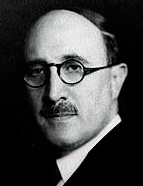

CSA began his political activities during the dictatorship of Miguel Primo de Rivera (1923-1930), driven by a sense of "civil duty", however, he always insisted that this was a "tortuous path" that ultimately diverted him from his research. He joined Manuel Azaña's Acción Republicana and, following the proclamation of the Second Republic on 14 April 1931, held several political positions, while also serving as rector of the Universidad Central. His roles included member of parliament for Ávila, president of the Comisión de Instrucción Pública [Commission on Public Education], Minister of State, Minister of Foreign Affairs, ambassador to Portugal, and vice-president of the Cortes. However, he always insisted that he did not consider himself a politician, and that his only aim had been to "set Spain's destiny on track". He described himself as "Spanish, democratic, liberal, Catholic, and republican" and shared Azaña's centre-left views because he was opposed both to the intolerance of the more traditional sectors and to the intransigence of the more radicalised factions. In his speech during the debate on the approval of the 1931 Constitution, he praised socialist policies and the "justice of their demands", as well as the "autonomous tendency", believing that "Spain has always been both one and multiple". His main political project was the aforementioned agrarian reform law, which sought to restore land ownership to peasants through expropriation. He aimed to fight abuses and refused to soften the norm with palliative measures, such as compensation. For him, the suspension of the reform in 1933 marked the end of the Republic.
On 15 May 1936, CSA arrived in Lisbon on a train from Madrid, aiming to improve relations between the Spanish Republic and the Salazar regime. At the station, he was greeted by young students and democratic supporters, as well as a group of fascists, and thousands of police officers. In a speech to the Radio Clube Português, he advocated for the republican vision of creating "a better Spain", "in peace and guided by new moral and human laws". He explained that, in order to follow a "path that would shape Spain", independent of foreign regimes, whether from the right or the left, intellectuals like himself had "thrown themselves into the sea of political passions". Minutes after his speech – which would later be published in full in the newspaper O Século – the National Broadcaster aired the speech by King João I from the time of the Battle of Aljubarrota. In the following weeks, references to Aljubarrota were repeated almost constantly, to the point where the new ambassador remarked that "the battle that Castile lost seven centuries ago could be believed to have been won by the current dictatorship just the day before yesterday". Episodes like this, along with the portrayal of the Spanish political situation in the Portuguese press – which CSA believed was exaggerated – highlighted the growing tension between the Salazar regime and the Republican government.
This work is financed by national funds through FCT - Foundation for Science and Technology, I.P, in the scope of the projects UIDB/04311/2020 and UIDP/04311/2020.
